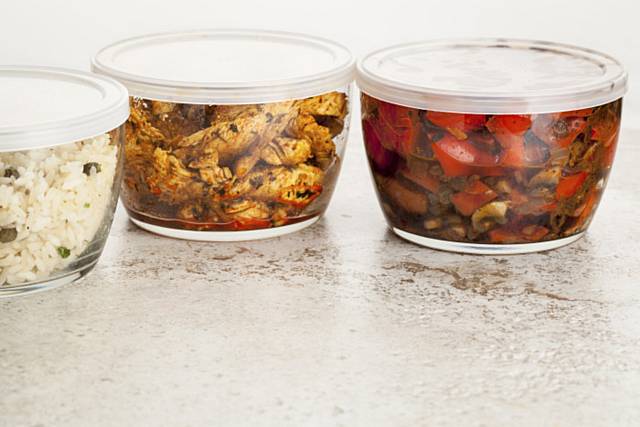Residents urged to freeze not throw
Date published: 04 July 2016

Food Safety Week urges residents to freeze not throw
Local residents and food outlets are being advised how to get the most out of their food safely this Food Safety Week (4-10 July).
The Food Standards Agency (FSA) campaign is to help people better understand how to waste less food using helpful tips such as freezing food, planning meals and batch cooking.
According to the Love Food Hate Waste campaign, every year in the UK seven million tonnes of food is wasted; often because it’s past the ‘use by’ date or there is too much. This costs each household around £470.
Use by date is about safety and the most important date to remember! Foods can be eaten (and most can be frozen) up until the use by date, but not after. You will see use by dates on food that goes off quickly, such as meat products or ready-prepared salads. For the use by to be a valid guide, you must carefully follow storage instructions.
Best before date is about quality and not safety. The food will be safe to eat after this date but may not be at its best. Its flavour and texture might not be as good. The best before dates appear on a wide range of frozen, dried, tinned and other foods. The best before date will only be accurate if the food is stored according to the instructions on the label.
After the use by date, don't eat it, cook it or freeze it. The food could be unsafe to eat or drink, even if it is stored correctly and looks and smells fine.
Quick tips to save money, make time and reduce waste by eating, cooking or freezing food by its use by date:
1. Plan your meals ahead
Try and get into the habit of checking what you already have in the fridge and freezer before you go shopping. Use up foods that are approaching their use-by date and other fresh foods like fruit and vegetables, meat, fish, cheese or milk first as these can go off over time.
2. Don’t trust the sniff test
Food can look and smell fine even after its use by date, but that doesn't mean it's safe to eat. It could still be contaminated. You cannot see, smell or taste the bugs that cause food poisoning.
3. Batch cook and freeze multi buys
If you are taking advantage of multi buys or larger pack sizes (e.g. chicken breasts) you can freeze them individually in smaller bags. You can also cook enough for two (or more!) meals, or batch cook, and eat one and freeze some for later - this avoids waste and minimises the effort of cooking. If you need some ideas, why not try our tasty recipes?
4. Freeze food up to the use by date
Many people believe food can only be frozen on the day of purchase, however, you can safely freeze most foods right up to the use by date. Although it would be good to freeze it as soon as you know you aren’t going to use it before its use-by date expires.
5. Wrap up
It is best to place food in an air tight container or wrap food well in freezer bags, freezer wrap or cling film before placing in the freezer otherwise the cold air will dry it out. Try to expel any air from freezer bags.
6. Freeze both raw and cooked meats
You can safely freeze raw and cooked meats and even cook defrosted meat into a new meal and freeze for use on another day. Simply defrost overnight in the fridge (be careful that raw meat doesn’t drip on any other foods in the fridge and check it is thoroughly defrosted), use within 24 hours and cook till steaming hot.
7. Eat frozen food within three to six months
Foods can be stored in a correctly functioning freezer for a long time without going off, but it’s the quality that deteriorates over time. So it’s best to eat your frozen food within 3 to 6 months (but do check for any freezing instructions on the packaging). If your meat is frozen for longer - marinate it before cooking to improve texture or use herbs and spices to add flavour.
8. Defrost overnight in the fridge
You can defrost frozen food overnight in the fridge but check to make sure it is thoroughly defrosted. Once defrosted use within 24 hours and cook until steaming hot. If you need it quickly, food can be defrosted safely in the microwave, but check that there are no frozen lumps or cold spots in the middle.
Do you have a story for us?
Let us know by emailing news@rochdaleonline.co.uk
All contact will be treated in confidence.
Most Viewed News Stories
- 1Rochdale Exchange Market to reopen after a decade
- 2Decision delayed on 445-home estate in Castleton
- 3Rochdale’s Fabdance Centre triumphs at national championships
- 4New golf clubhouse and a new housing estate approved, despite wildlife concerns
- 5An idea to change an empty 160-year-old pub has been refused
To contact the Rochdale Online news desk, email news@rochdaleonline.co.uk or visit our news submission page.
To get the latest news on your desktop or mobile, follow Rochdale Online on Twitter and Facebook.

